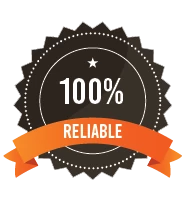Liquor as Investment: Understanding the Market for Collectible and Rare Bottles

Dive into the world of liquor investment with our blog, exploring the market dynamics of collectible and rare bottles, and learn how to navigate this niche market for potential returns and enjoyment.
In recen t years, an intriguing trend has emerged within the liquor industry: the rise of liquor as an investment. Beyond its traditional role as a beverage for enjoyment, liquor, particularly collectible and rare bottles, has captured the attention of investors seeking alternative assets with the potential for high returns. In this blog post, we'll delve into the world of liquor investment, exploring the factors driving this trend, the market dynamics of collectible bottles, and key considerations for those looking to enter this niche market.
The Appeal of Liquor Investment
Unlike traditional investments such as stocks or real estate, liquor investment offers a unique allure. Collectible and rare bottles possess inherent value beyond their liquid contents, making them tangible assets with potential for appreciation over time. Factors contributing to their appeal include:
Rarity and Exclusivity:
Collectible bottles are often limited editions or discontinued releases, making them rare finds coveted by enthusiasts and collectors worldwide. The scarcity of these bottles drives up their value, especially when demand exceeds supply.
Historical and Cultural Significance:
Certain bottles carry historical significance or cultural cachet, adding to their allure for collectors. Whiskey distilled decades ago, for example, may represent a bygone era of craftsmanship or be associated with iconic distilleries and legendary master distillers.
Aesthetic Appeal:
Beyond their contents, collectible bottles often feature exquisite packaging, intricate labels, and unique designs. As objets d'art, they appeal to collectors with an appreciation for craftsmanship and aesthetics.
Market Dynamics of Collectible Bottles
The market for collectible and rare liquor bottles operates within a niche but dynamic ecosystem. Several key factors influence the value and desirability of these bottles:
Age and Rarity:
Older bottles, particularly those from discontinued distilleries or limited releases, tend to command higher prices due to their scarcity and historical significance. Bottles with intact seals and labels, as well as pristine packaging, are especially prized by collectors.
Brand Reputation and Prestige:
Established brands with a legacy of quality and craftsmanship often fetch premium prices in the secondary market. Whiskey from renowned distilleries such as Macallan or Bowmore, for example, enjoys a reputation for excellence that translates into strong demand among collectors.
Market Trends and Demand:
Like any investment market, the value of collectible bottles fluctuates based on supply and demand dynamics. Emerging trends, such as growing interest in Japanese whiskey or limited-edition releases from boutique distilleries, can drive up prices for certain bottles.
Condition and Provenance:
The condition of a bottle, including factors like fill level, label condition, and storage history, significantly impacts its value. Bottles with a documented provenance or a known history of ownership by notable individuals may also command higher prices at auction.
Considerations for Investors
While liquor investment offers the potential for lucrative returns, it's essential for investors to approach this market with caution and due diligence. Here are some key considerations to keep in mind:
Research and Education:
Before diving into liquor investment, take the time to educate yourself about the market, including current trends, pricing dynamics, and reputable sources for acquiring bottles. Joining online forums, attending tastings, and networking with seasoned collectors can provide valuable insights.
Budget and Risk Tolerance:
As with any investment, it's crucial to establish a clear investment strategy and set realistic goals based on your budget and risk tolerance. While rare bottles can yield substantial returns, they also carry inherent risks, including market volatility and the potential for counterfeit bottles.
Authentication and Verification:
Given the prevalence of counterfeit bottles in the secondary market, authentication is paramount. Invest in bottles from reputable sources with a track record of authenticity, and consider obtaining certificates of authenticity or enlisting the services of third-party authentication experts.
Storage and Maintenance:
Proper storage is essential for preserving the value of collectible bottles. Invest in temperature-controlled storage facilities or cabinets to protect against fluctuations in temperature and humidity, which can degrade the quality of the liquor and its packaging.
Diversification and Portfolio Management:
To mitigate risk and maximize returns, consider diversifying your liquor investment portfolio across different categories, including whiskey, cognac, rum, and other spirits. Monitor market trends and adjust your portfolio accordingly to capitalize on emerging opportunities.
Conclusion:
In conclusion, liquor investment represents a compelling alternative asset class for investors seeking diversification and potential for capital appreciation. Collectible and rare bottles offer a unique blend of historical, cultural, and aesthetic value, making them prized possessions for enthusiasts and collectors worldwide. By understanding the market dynamics, conducting thorough research, and exercising prudent investment practices, investors can tap into the lucrative potential of this niche market while enjoying the pleasure of owning and appreciating exceptional spirits. Cheers to the fascinating world of liquor investment!
How to get drinking liquor license : Click Here to Apply Now












